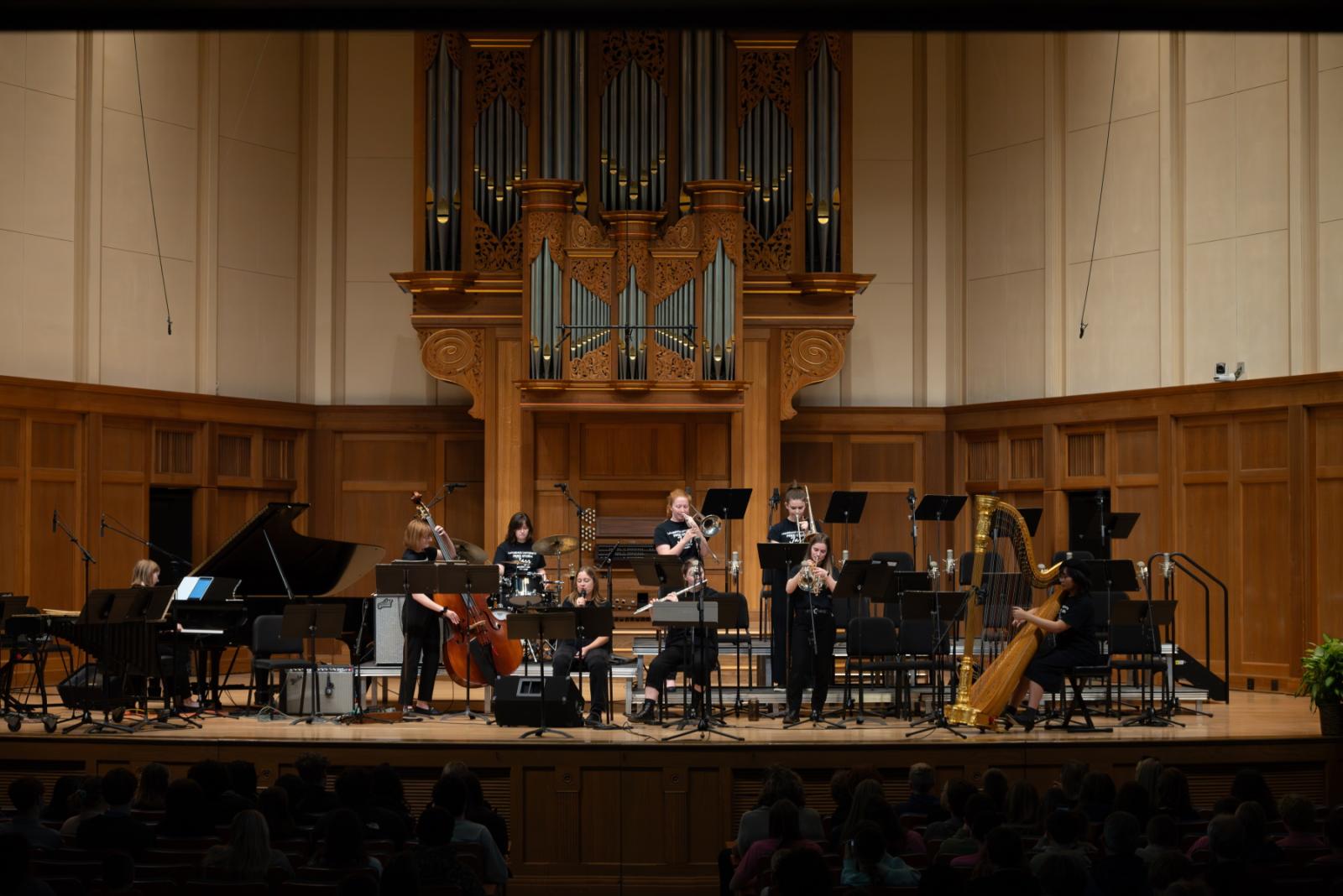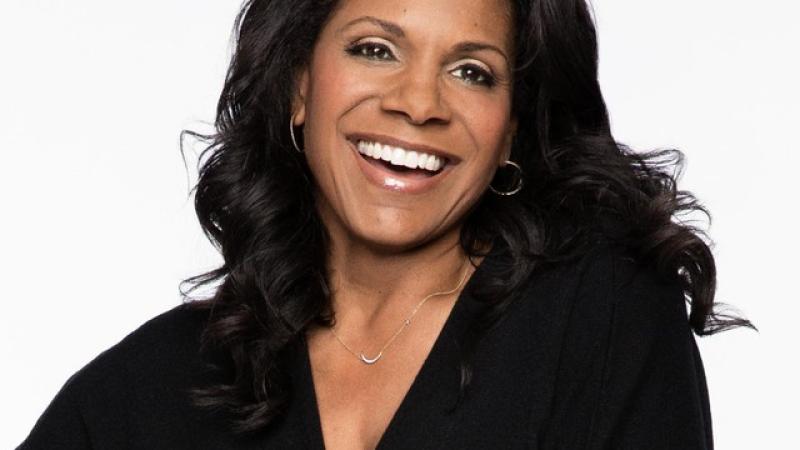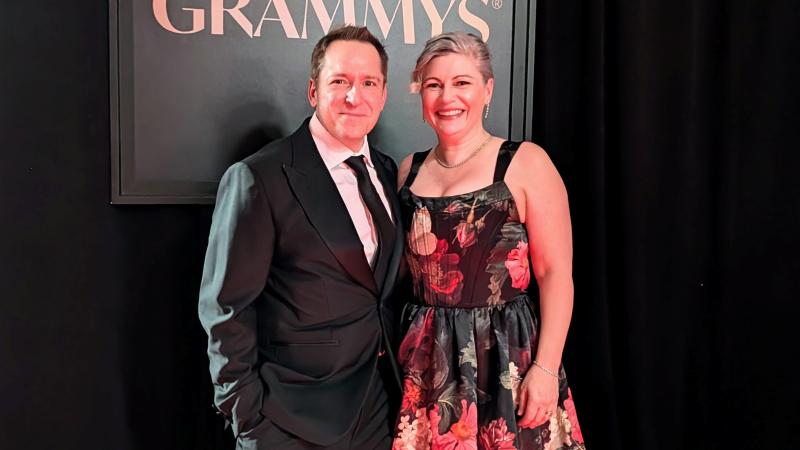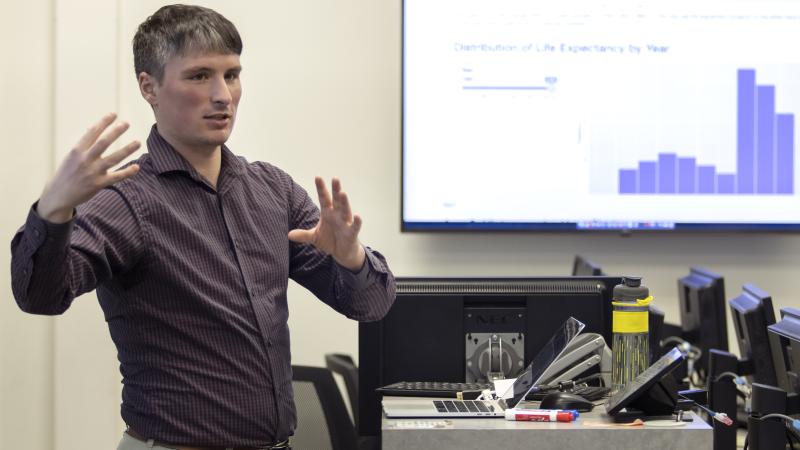Lawrence University senior Reese Pike and sophomore Vivian Shanley recall countless times when they were the only women in their jazz ensembles.
So, when they led the newly formed Jazz and Gender Equity Initiative (JGEI) to the stage at the Conservatory of Music’s recent Fred Sturm Jazz Celebration Weekend, it was a satisfying moment. They performed Alice Coltrane’s Blue Nile at Memorial Chapel with an all-female and non-binary ensemble in front of hundreds of high school and middle school music students attending the annual jazz festival.
“We really wanted to perform at Jazz Weekend because we want high schoolers to see there can be a group with a ton of women performing at the college level,” Pike said.
The forming of JGEI—a new iteration following in the footsteps of the earlier Women in Jazz Initiative—is all about changing the narrative in jazz.
“When jazz was being created, there was a lot of forcing women instrumentalists out of groups, or women not being allowed to tour,” Pike said. “This has always been a thing in jazz, and people are gradually starting to combat it, more and more.”
Grow your artistry, build your technical facility, and expand your musical possibilities in a community of collaboration and support.
Among those combatants are students of the recently founded JGEI. More than 30 Lawrence students are involved in the group, which endeavors to broaden jazz inclusivity in the Conservatory and beyond by highlighting the contributions of women and non-binary jazz artists. The group meets weekly.
Pike, a double major in music performance (piano-jazz emphasis) and Spanish from Omaha, Nebraska, and her co-president, Shanley, a music performance (double bass) and music education major from Cedar Rapids, Iowa, have noted the marginalization of women in the genre for many years. When the group conducted demographic research two years ago, they found that only about 10% of Lawrence’s jazz students identified as a gender other than cisgender male.
Shanley has noticed that the more advanced the musical setting in jazz, the less women seem to be present.
“Young women … see their band director is a man and there’s no women in the high school jazz band [and conclude] ‘I don’t think this is really something for me’,” Shanley said.
The female jazz musicians most people know are the singers—Ella Fitzgerald, Billie Holiday, Nina Simone, for instance. Historically, women have been pushed out of instrumental pursuits, leading to perceptions they are not serious musicians, but merely entertainers.
“[Singers] also had to deal with a lot of sexualization and different kinds of treatment,” Pike said.
At the Nov. 3-4 Jazz Celebration Weekend, Pike and Shanley took part in the JGEI combo group, joined by fellow Lawrence students Jozelle Filippi, Mallory Meyer, Taylor Nordeng, Sarah Pedlar, Yv Radaza, Kate Stenson, and Elizabeth Williams.
The musical guests at this year’s Jazz Celebration Weekend evening concerts were two woman-led ensembles: the Alicia Olatuja Quintet and the Magos Herrera Quartet.
Blue Nile was the song of choice for the JGEI because composer Alice Coltrane is often overshadowed by her husband, John Coltrane. The group found this work in The New Standards, a book of 101 jazz songs by women composers, prepared by Terri Lyne Carrington.
The JGEI ensemble was invited to perform by Patty Darling, instructor of music, and José Encarnación, associate professor of music and director of jazz studies.
“Patty and José have been really supportive since the beginning,” Shanley said.
“The outreach that JGEI is doing on our LU campus is so important,” Darling said. “They are working to create an inclusive and nurturing environment for all students in our jazz program and are raising awareness of the amazing contributions of women composers and performers, past and present. The activities they are organizing—concerts, movie nights, listening parties, meetings—all of these events help to support and expand the growing movement in the jazz world toward gender equality.”
The Jazz Celebration Weekend experience is building momentum, the students said.
“It’s a really powerful thing to play in a band of all women,” Pike said. Shanley added, “Just to see how it can be different is really exciting.”



